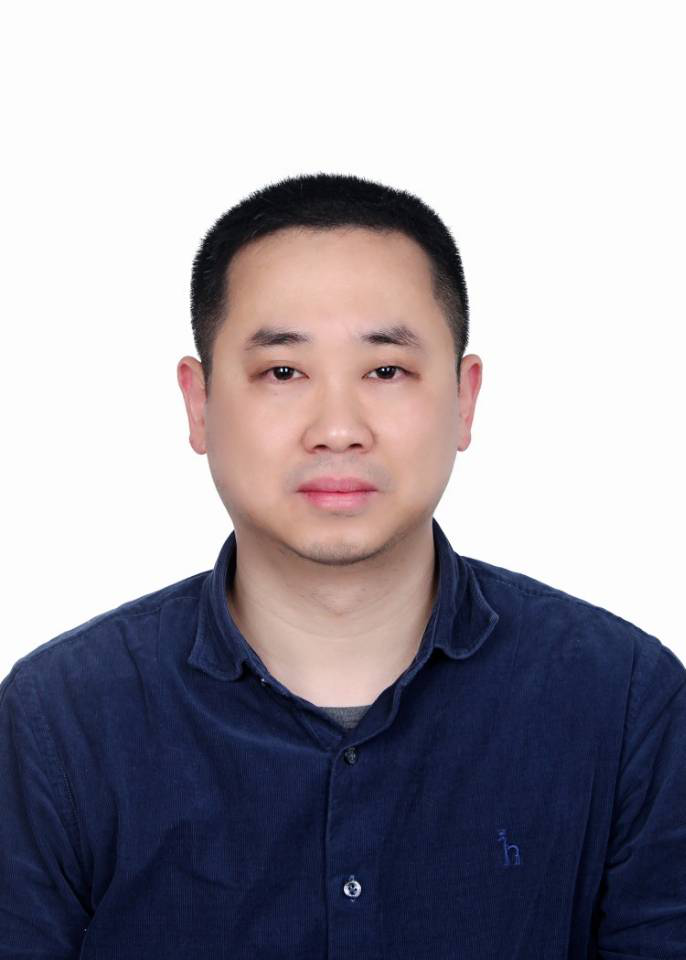

Department:Orthopedics
Medical School:Zhejiang University School of Medicine, China
Academic Rank:Professor
To explore how to generate engineered exosomes for tumor treatment.
To develop new methods of adoptive infusion of TH9 cells for tumor treatment.
Chinese Society of Immunology Young Scholar Award, 2012
Member, Committee of Research and Application of Extracellular Vesicles, Chinese Medical Research Association
Member, Basic Medical Committee, Zhejiang Society of Immunology
Senior Member, Chinese Society of Immunology
Member, Editorial committee, International Journal of Biologicals
Prof. Cai has long been engaged in research on extracellular vesicles (EVs) and immunity, and has achieved a series of original results. He and his team:
(1) revealed a new mechanism of immunosuppression induced by extracellular vesicles after chemotherapy.
(2) showed a new mechanism for the body to maintain lung and intestinal immune balance mediated by extracellular vesicles.
(3) found a new method for the treatment of autoimmune diseases using exosomes (exosomes, one of EVs) derived from dendritic cells (DCs) modified by immunosuppressive genes.
(4) discovered a new mechanism by which tumor cell-derived exosomes promoted tumor metastasis by domesticating DCs, revealed a new mechanism by which exosomes mediated tumor metastasis via Fas signaling.
(5) discovered serum CD19-positive exosomes could be found to screen early tumors.
(6) found the new function of autophagy in regulating TH9 cell differentiation and the important role of CD69 in maintaining Treg immunosuppressive function.
Recently, the topics that his research group is working on are as follows:
1. Protein neddylation modification regulates exosomes release;
2. Thoracic injection of tumor cell-derived exosomes inhibits lung tumors;
3. Study on the treatment of Her2 positive tumors with engineered exosomes;
4. FBXW7-mediated TH17 cell differentiation participates in bowel inflammation;
5. Study on how TH9 cell exerting its antitumor activity.
Zhang G, Huang X, Xiu H, Sun Y, Chen J, Cheng G, Song Z, Peng Y, Shen Y, Wang J, Cai Z*. Extracellular vesicles:natural liver-accumulating drug delivery vehicles for the treatment of liver diseases. Journal of Extracellular Vesicles. 2020; e12030.
Chen J, Fei X, Wang J*, Cai Z*.Tumor-derived extracellular vesicles: Regulators of tumor microenvironment and the enlightenment in tumor therapy. Pharmacological Research. 2020; 159:1-10.
Zhang F, Li R, Yang Y, Shi C, Shen Y, Lu C, Chen Y, Zhou W, Lin A, Yu L, Zhang W, Xue Z, Wang J, Cai Z*.Specific decrease in B-cell-derived extracellular vesicles enhances post-chemotherapeutic CD8+ T cell responses. Immunity. 2019; 50(3):738-750.
Shen Y, Song Z, Lu X, Ma Z, Lu C, Zhang B, Chen Y, Duan M, Apetoh L, Li X, Guo J, Miao Y, Zhang G, Yang D, Cai Z*& Wang J. Fas signaling-mediated TH9 cell differentiation favors bowel inflammation and antitumor functions. Nature Commun. 2019; 07,10(1): 2924.
Yu L,Yang F, Zhang F, Guo F, Li L, Wang X, Liang T, Wang J,Cai Z*, Jin HC. CD69 enhances immunosuppressive function of regulatory T-cells and attenuates colitis by prompting IL-10 production. Cell Death Dis. 2019; 9(9):905.
Wei Y, Zhang F, Zhang Y, Wang X, Xing C, Guo J, Zhang H, Suo Z, Li Y, Wang J, Wang R, Cai Z*. Post-transcriptional regulator Rbm47 elevates IL-10 production and promotes the immunosuppression of B cells. Cell Mol Immunol. 2018.
Wan S, Wang S, Weng L, Zhang G, Lin Z, Fei X, Zhang F, Yang F, Wang J, Cai Z*. CD8ɑ+CD11c+ Extracellular Vesicles in the Lungs Control Immune Homeostasis of the Respiratory Tract via TGF-β1 and IL-10. J Immunol. 2018; 200(5):1651-1660.
Shen Y, Guo D, Weng L, Wang S, Ma Z, Yang Y, Wang P, Wang J, Cai Z*. Tumor-derived exosomes educate dendritic cells to promote tumor metastasis via HSP72/HSP105-TLR2/TLR4 pathway. Oncoimmunology. 2017; e1362527.
Rivera Vargas T, Cai Z, Shen Y, Dosset M, Benoit-Lizon I, Martin T, Roussey A, Flavell RA, Ghiringhelli F, Apetoh L. Selective degradation of PU.1 during autophagy represses the differentiation and antitumour activity of TH9 cells. Nat Commun. 2017; 15;8(1):559.
Jiang L, Shen Y, Guo D, Yang D, Liu J, Fei X, Yang Y, Zhang B, Lin Z, Yang F, Wang X, Wang K, Wang J, Cai Z*. EpCAM-dependent extracellular vesicles from intestinal epithelial cells maintain intestinal tract immune balance. Nat Commun. 2016; 7:13045.
Yang F, Wei Y, Cai Z, Yu L, Jiang L, Zhang C, Yan H, Wang Q, Cao X, Liang T, Wang J. Activated cytotoxic lymphocytes promote tumor progression by increasing the ability of 3LL tumor cells to mediate MDSC chemoattraction via Fas signaling. Cell Mol Immunol. 2015; 12(1):66-76.
Study on the inhibition of exosome production and related mechanisms by protein neddylation modification. Funding Source: National Natural Science Foundation.
The molecular mechanism of FAS signaling inducing IL-1β secretion from dendritic cells and its role in the progression of autoimmune diseases. Funding Source: National Natural Science Foundation.
High-intensity FAS activation signal inhibits T cell apoptosis and its related mechanisms. Funding Source: National Natural Science Foundation.
The role of lung source exosomes in maintaining respiratory tolerance and related mechanisms. Funding Source: National Natural Science Foundation.
Molecular basis of pregnancy-related diseases caused by maternal-fetal immune regulation disorder. Funding Source: National Program on Key Basic Research Project ("973" Program).